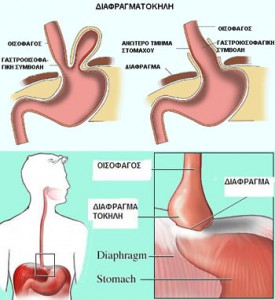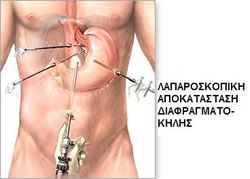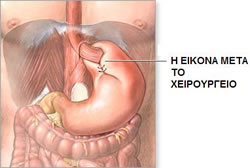What is gastroesophageal reflux disease (GERD)
Gastroesophageal reflux is the disease in which the stomach empties some of its contents in the  oesophagus.
oesophagus.
A small muscle ring, called the Lower Oesophageal Sphincter (LOS), is situated at the lower part of the oesophagus. The LOS acts as a one-way valve, allowing food to enter the stomach. Normally, LOS closed immediately after swallowing, to prevent the reflux of stomach fluids, which are rich in acids.
The GERD occurs when the LOS doesn’t function properly, allowing the acids to flow backwards and damage the lower part of the oesophagus, creating conditions favouring the occurrence of oesophagitis, stricture, ulcer, haemorrhage, dysplasia, and even carcinogenesis.
Gastroesophageal reflux symptoms
The most common symptom of GERD is “heartburn,” although this word is commonly used to describe a variety of digestive problems. According to the medical terms, the retrosternal pyrosis (“heartburn”) is described as an acute burning feeling behind the sternum. Other symptoms may include bitter taste, difficulty in swallowing, chronic cough and low-grade fever. The GERD can cause asthma or severe pneumonia, persistent dry cough, hiccups, hoarseness or erosion of the back teeth.
The worst complication of GERD is the development of oesophageal cancer (adenocarcinoma).
Gastroesophageal reflux treatment
The GERD is generally treated in three stages.
Lifestyle changes:
In many cases, changing dietary habits, losing weight, reducing smoking and alcohol consumption, and changing sleep habits, can help treat the GERD symptoms.
Medication:
If the symptoms persist despite of the lifestyle changes, medication treatment to neutralise stomach acids and reduce the amount of acids produced in the stomach is needed.
The long term use of medication often causes complications, and the total cost is high.
Surgical treatment:
Patients who do not respond well to conservative (lifestyle changes) or medication treatments, will have to undergo surgery. Surgery is very effective at GERD treatment. In addition, it is the only way of preventing oesophageal cancer (adenocarcinoma).
Since 1990, the open GERD surgery has been replaced by the laparoscopic technique with better results and minimal potential for intraoperative complications.
During GERD surgery, we readjust and repair the hiatus hernia, we converge (“bring close” using sutures) the parts of the sphincter, and we strengthen the LOS valve by wrapping the stomach dome around the lower oesophagus. There are two techniques: the laparoscopic fundoplication by Nissen, or fundoplication 360°, and the laparoscopic fundoplication by Toupet or fundoplication 270°.
For the laparoscopic treatment of GERD, the surgeons make 4-5 small incisions (5 mm) on the skin, without cutting the muscles. The laparoscope, which is connected to a sophisticated icroscopic camera, allows the surgeon to see the patient’s internal organs enlarged by 10-15 times on a screen.






